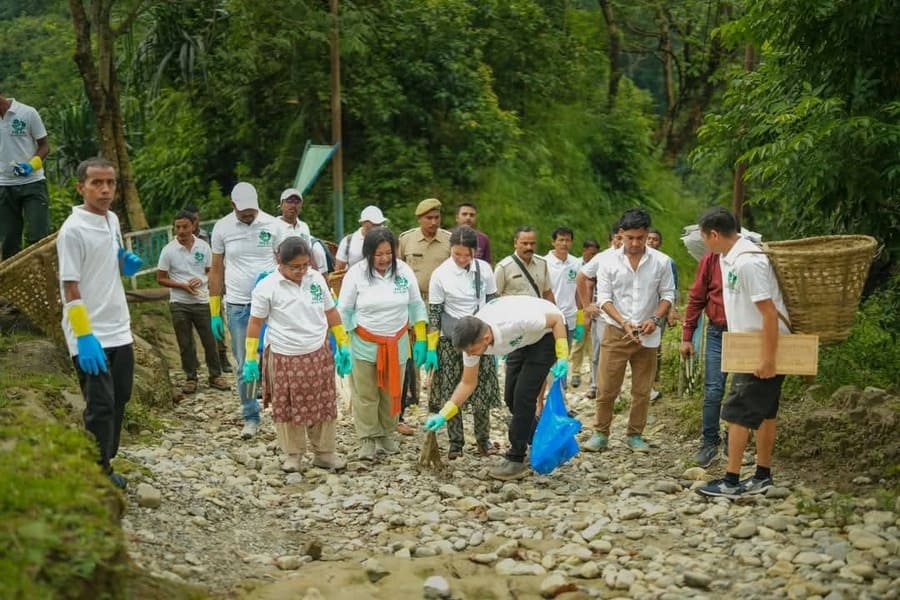Heal Buxa Hills: Alipurduar’s bold push for plastic-free tourism
Related Articles
भाजपा ने राज्यसभा चुनाव के लिए 9 उम्मीदवारों की सूची जारी
भाजपा ने राज्यसभा चुनाव के लिए 9 उम्मीदवारों की नाम सूची जारी की है। इसमें बिहार से नितिन नबीन का नाम शामिल है। पार्टी...
दिल्ली सरकार की मोनेस्ट्री मार्केट को बड़ी सौगात, 3 करोड़ की लागत से फुटओवर ब्रिज का निर्माण
दिल्ली की मुख्यमंत्री रेखा गुप्ता ने कश्मीरी गेट स्थित मोनेस्ट्री मार्केट में फुट ओवरब्रिज का उद्घाटन किया। इस प्रोजेक्ट की लागत 3 करोड़ रुपये...
नीतीश का राज्यसभा में नामांकन, अमित शाह समेत दिग्गजों की रही मौजूदगी
बिहार विधानसभा में राष्ट्रीय जनतांत्रिक गठबंधन (NDA) के उम्मीदवार मुख्यमंत्री नीतीश कुमार ने आज राज्यसभा के लिए अपना नामांकन पर्चा दाखिल कर दिया। इस...


